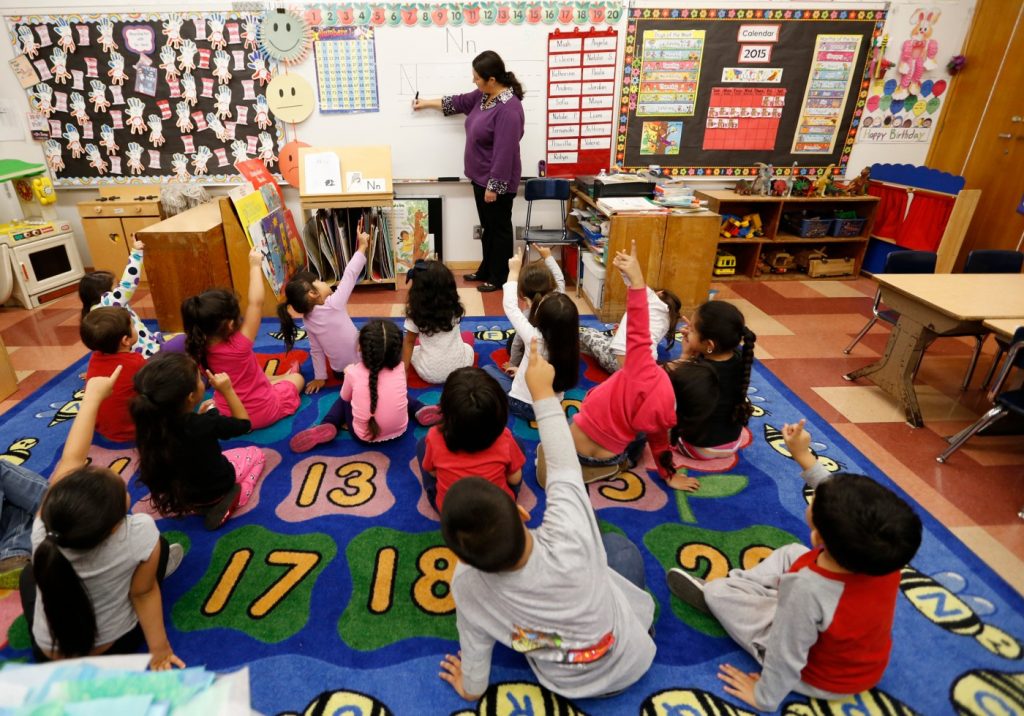On May 17, 1954, the United States Supreme Court took a historic step toward ending injustice with its decision in Brown v. Board of Education. Politicians once stood in the schoolhouse door as a barrier to keep minorities out.
The new civil rights challenge is to break through the barrier that’s trapping minority children in failing government schools today.
Teachers unions.
Teachers unions exploited the pandemic, holding the education of America’s children hostage to extract ransom payments from taxpayers. Yet, the remote learning they pushed revealed that many schools focused more on indoctrination than education. Unions overplayed their hand and awakened a sleeping giant: parents.
As I explain in “The Parent Revolution: Rescuing Your Kids from the Radicals Ruining Our Schools,” conservatives have since doubled down to provide all families with the freedom to choose how to educate their children. And remarkably, in the last three years, 11 states with Republican-controlled legislatures have passed universal school choice initiatives.
School choice shouldn’t be a partisan issue. Actually, it isn’t among voters. RealClear Opinion Research polling found that a supermajority of Republicans, Democrats and independents support school choice. Further, University of Houston polling found that 73% of Black Democrats support private school vouchers for low-income families in Texas.
Indeed, the problem is that the Democratic Party is a subsidiary of the teachers unions. In fact, unions engage in what is tantamount to money laundering. In 2022, 99.97% of campaign contributions from the American Federation of Teachers went to Democrats. Make no mistake, this one-sided cycling of cash has been taking place for decades. And politicians listen to the special interest dollars over their own constituents.
The public school system — more accurately, the “government school system” — spends $20,000 in taxpayer money per student annually. However, the average private school tuition is less than $13,000 annually. Taxpayers’ money should be redirected to families to empower them to choose the education provider that best meets their needs and aligns with their values. That’s the most economical and democratic approach to education.
The government school system discriminates by ZIP code and is rife with inequality. For example, there are dozens of government-run Baltimore schools in which no student is proficient in math. The government school system is also markedly divided along racial lines. A preponderance of evidence finds that school-choice initiatives yield integration. Lo and behold, several staunch segregationists locked arms with teachers unions to oppose school choice in the 1950s after the Supreme Court’s Brown v. Board of Education ruling.
Today, as it was then, education freedom is the great equalizer.
If the ideologues running teachers unions were honest, they would label the vast disparities in government-run schools “systemic racism.” Yet, they don’t because the apparent solution — giving families the right to choose their children’s education — would diminish their power.
Fortunately, some Democratic politicians are finally breaking with teachers unions. Legislators in Georgia and North Carolina joined the GOP on the issue of school choice last year. In Pennsylvania, Josh Shapiro changed his education platform to include private schools right before his gubernatorial election in 2022. In Virginia, the defeat of Terry “I-don’t-think-parents-should- be-telling-schools-what-they- should-teach” McAuliffe was undoubtedly a cautionary tale.
The Louisiana House passed universal school choice by a supermajority vote of 72 to 32, and nearly 20% of the Democrats in the chamber voted for the bill. “As I watch children in poverty, trapped in failing schools, who can hardly read, I’d be damned if I will continue to defend the status quo,” said Rep. Jason Hughes from the floor.
Related Articles
Antioch school board appoints Rob Martinez as acting superintendent
Walters: California’s budget deficit revives everlasting battle over school funding
Los Gatos High School names second new assistant principal
Saratoga students win scholarships for ‘accomplishment in their field’
How the promise of big energy savings in one Bay Area school district led to a $50 million controversy
Eleven percent of Florida’s House Democrats voted for universal school choice last year. This year, three Democrats in the Missouri House voted to expand school choice, and Democratic state Sen. Justin Wayne made a consequential vote for school choice in Nebraska.
If enough Democratic officials locked arms and listened to their constituents, they could once and for all break free from the militants running teachers unions. If they don’t, sooner rather than later, they will be excoriated and punished by parents, who have emerged as one of the most potent voting blocks in modern American politics.
Corey A. DeAngelis is a senior fellow at the American Federation for Children and a visiting fellow at Stanford University’s Hoover Institution. He wrote this for InsideSources.com. ©2024 Tribune Content Agency.


